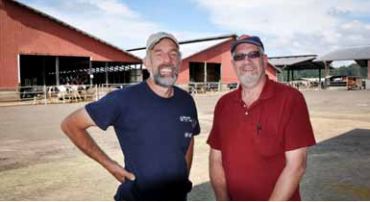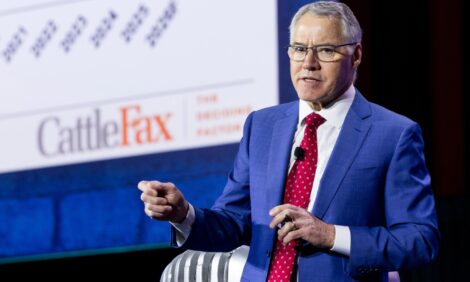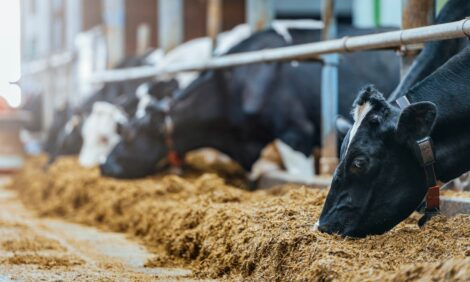



Putting Sustainability Into Practice: Big Companies Can Do It Too
GLOBAL - Economic, Ethical and Environmental sustainability is not just lip-service in dairy farming but is being put into practice globally a global giant.These ‘Three E’s’ direct the McDonald’s drive for sustainable supply, not just in dairy foods, but across all food divisions.
Huge efforts have gone into securing dairy food safety and reducing the negative impact of production in both developed and more challenging dairying settings.
*
"In Nigeria, DDP opened three milk collection points so farmers do not have to travel long distances to sell their milk."
Recently, McDonald’s praised its suppliers and producers alike for innovative solutions that give concrete examples of how farming can be more efficient, benefiting the ‘Three E’s’.
Southern Hemisphere
With the majority of its 11,200 Australia and New Zealand dairy farms drawing on electricity from coal-fired power stations, Fonterra can make major inroads into greenhouse gas emissions.
“Energy analysis suggests the average farm can reduce energy-related emissions in dairy sheds by more than 10 per cent,” said Jack Holden, Fonterra's sustainability manager.
Farmers are being provided with an energy or nutrient specialist to identify ‘leaks’ and change the farm for the better regarding effluent or energy.
“Surveys indicate that rising energy and fertilizer costs are two of farmers’ biggest concerns,” added Mr Holden. “However, farmers often do not have the skills, tools or experience to identify low-cost efficiency opportunities.”
“This programme encourages farmers already practicing fundamentals to undertake more innovative projects, such as distributing effluent on land that was not irrigated to reduce fertilizer demand.
“Other projects included automating irrigation shut-offs and water reuse systems.”
Washington State, US
Up to 1.2 megawatts of electricity is expected to be produced near Monroe in Washington when a 750 kilowatt generator is installed to run alongside an existing 450 kilowatt unit.
The build is part of a renewable energy project led by two farming brothers, Jim and Andy Werkhoven under their non-profit partnership of local businesses – Qualco Energy.

Jim Werkhoven is chairman of the Northwest Dairy Association, the 500 member farmer cooperative that owns Darigold and made plans for a second generator after generating three times more power than anticipated.
Situated near the confluence of the Skyhomish and Snoqualmie Rivers, salmon numbers are a priority in the area as farmland faces urban sprawl and numerous conservation efforts to protect aquatic life.
“The goal of Qualco Energy was to create a profitable digester system that would preserve the land, improve the local ecosystem, enhance biodiversity, and provide specific economic benefit to each of its members,” said Darigold’s director of farming pratices Antone Mickelson.
“Manure from the Werkhoven Dairy and off-site feedstocks produces gas. The digester takes cow manure, fish waste, animal blood, trap grease, pulp, whey, expired beer and soda, and other pollutants—keeping them from landfills, drains, and illegal dumping—and anaerobically digests and burns the methane gas to create renewable electrical energy.”
Digester income allows other projects to be supported including more energy and recycling projects and investment into state-of-the-art farming.
Dairy Development Programme (DPP)
Forty per cent of Viet Nam’s milk is now cooled and Thailand farmers are expecting to see a five per cent reduction in feed spend thanks to DPP programmes.
Through its Dairy Development Programme (DPP) – which works with around 40,000 farmers - Friesland Campina is putting expert consultants on local dairy farms as extension workers and is investing in local infrastructures.
The project has made production and retail elements easier for many farmers, according to FrieslandCampina’s Peter van Sprundel.
“In Thailand, DDP built a cooling tank that can hold up to 5 metric tons of milk per day and a 500-cow dairy farm where members of the cooperative can buy cows in exchange for young cattle,” said Mr van Sprundel.
“In Nigeria, DDP opened three milk collection points so farmers do not have to travel long distances to sell their milk.”
Longer term, projects and knowledge are to be sustained through empowering communities through 25 local farmer training sessions.
Michael Priestley
News Team - Editor
Mainly production and market stories on ruminants sector. Works closely with sustainability consultants at FAI Farms



